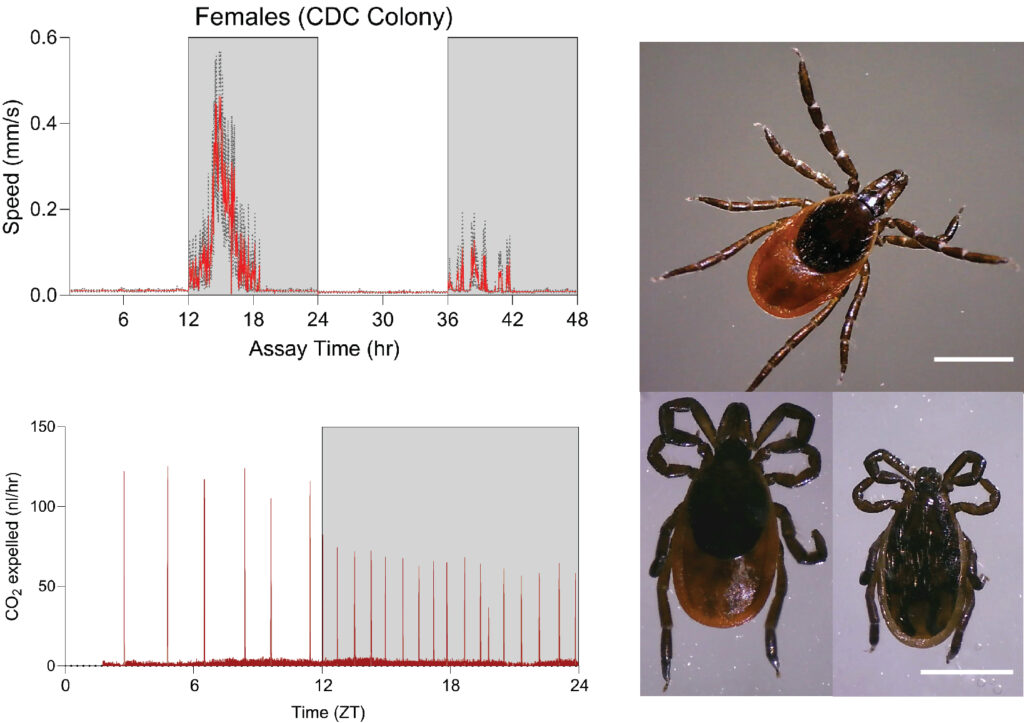We seek to understand the molecular, neural, and ethological signatures of arthropod dormancy, and how brains control metabolism
The Meiselman Lab’s goal is to understand how the brain perceives environmental factors and effectuates behavioral or metabolic changes in response. Poikilothermic arthropods are particularly vulnerable to abiotic factors like temperature and must, therefore, adopt rapid strategic responses to changing climatic conditions. Many insects, including disease-spreading mosquitoes and ticks, circumvent persistent adverse environmental factors by dramatically suppressing metabolic rate until these factors subside. During winter in temperate climates or dry season in the tropics, vectors like ticks and mosquitoes arrest reproduction and enter a period of quiescence, during which they are major reservoirs for disease. Dormancy is thereby a critical component of disease transmission cycles, but little is known about its mechanistic underpinnings. Cold temperatures elicit similar metabolic and behavioral changes in closely-related Drosophila melanogaster adults; a dramatic metabolic decline that results in a period of stasis wherein reproduction arrests and aging ceases. Our lab uses the fly, which is more genetically tractable than mosquitoes and ticks while maintaining a similar hormonal repertoire, to model arthropod disease vectors.

A main thrust of the Meiselman lab is to find neural substrates for dormancy, also known as diapause. We screen for neural underpinnings of egg production, huddling, and photopreference, all modulated in dormancy-inducing cold
Photo Credit: Jamien Shea

Our recent report (https://www.nature.com/articles/s41598-024-65498-z) showed the primary vector for Lyme disease (Ixodes scapularis) is more active, breathes more frequently, and sleeps less during circadian night. A current collaborative project with the Elizabeth Case Lab (University of Wyoming) and Andrew Andres Lab (UNLV) seeks to determine if ticks carrying Borrelia, Anaplasma, Babesia, Erlichia, or Pawassan virus affects these behaviors.

Investigation of mosquito behavior Mosquito populations depend upon classes of dormancy like diapause or aestivation to survive seasons that are too cold or too dry for them to thrive. We hope use the closely-related fly as a model to help us find the neurons and neurotransmitters that underpin this state. We’re currently investigating egg production and diapause site selection in Aedes aegypti and Culex tarsalis, respectively.
News:
Congratulations to graduate student Jilian Morejon on her recent NIH diversity supplement award!